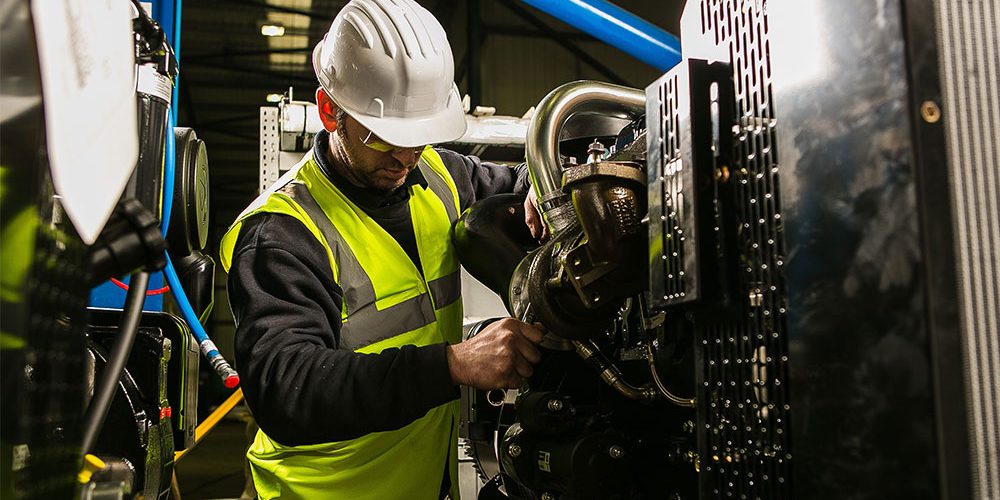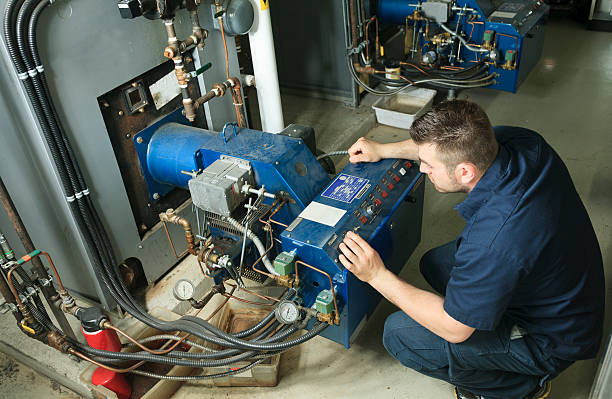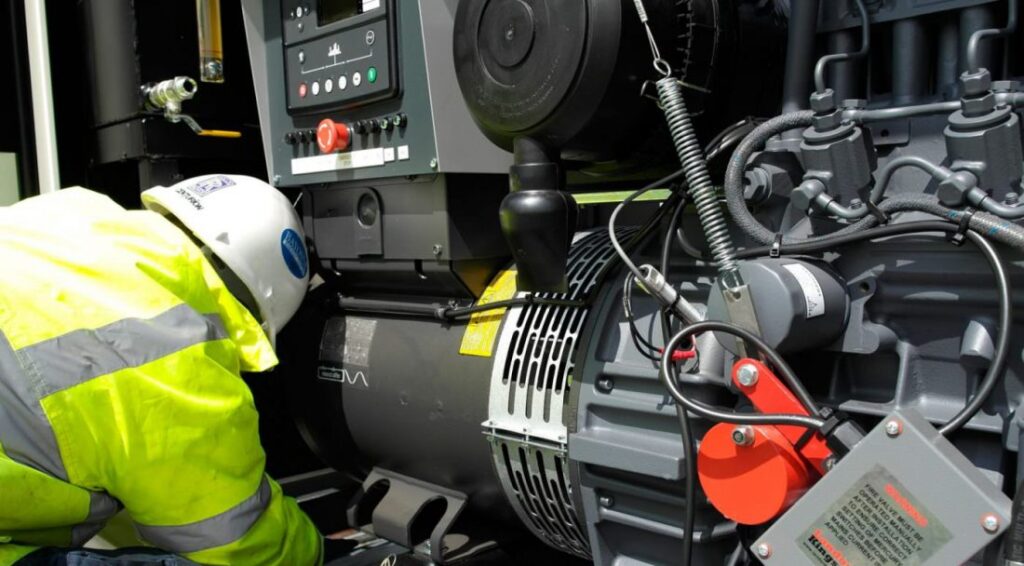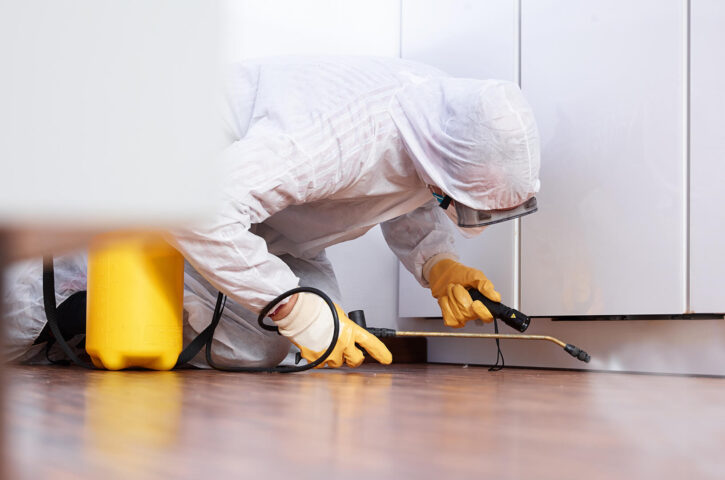
A reliable generator is essential for an uninterrupted power supply, whether for your home, business, or outdoor events. However, like any mechanical equipment, generators are prone to occasional breakdowns. That’s where generator repairs come into the picture, ensuring your power source operates smoothly and efficiently. This guide will delve into the world of repairs, covering everything from common issues and troubleshooting tips to the importance of professional maintenance services.
Table of Contents
Why Generator Repairs are Vital for Your Power Source
Generators are crucial in providing backup power during outages or in remote locations. However, regular wear and tear and unforeseen circumstances can cause a malfunction in your generator. That’s where professional repairs come to the rescue. By addressing and fixing the issues, these repairs ensure that your power source functions optimally when needed.

Common Generator Issues and Troubleshooting Tips
No Power Output
Problem: You’ve started your generator, but there’s no power output. Your appliances remain non-functional, leaving you in the dark.
Possible Causes and Solutions:
- Low or empty fuel tank: Check the fuel level and refill if necessary. Make sure the fuel valve is open.
- Faulty circuit breaker: Inspect the circuit breaker and reset it if it has tripped. If it continues to trip, consult a professional for further investigation.
- Damaged or loose electrical connections: Inspect the wiring and connections for any signs of damage or looseness. Tighten or replace as needed.
Overheating
Problem: Your generator shuts down unexpectedly due to overheating, disrupting the power supply.
Possible Causes and Solutions:
- Airflow obstruction: Ensure the generator is placed in a well-ventilated area, allowing sufficient airflow. Remove any debris or obstructions from the cooling vents.
- Coolant level issues: Check the coolant level and top up if necessary.
- Dirty air filter: Clean or replace the air filter regularly to prevent overheating.
Starting Problems
Problem: Your generator fails to start, leaving you without power when needed.
Possible Causes and Solutions:
- Low or dead battery: Check the battery charge and ensure it’s properly connected. If the battery is faulty, replace it with a new one.
- Stale fuel: Drain the old fuel from the tank and replace it with fresh fuel. Stale fuel can cause starting issues.
- Clogged carburetor: Clean the carburetor to remove any clogs or debris hindering the starting process.
Fuel System Issues
Problem: Your generator experiences fuel-related problems like poor fuel efficiency or frequent stalling.
Possible Causes and Solutions:
- Clogged fuel filter: Inspect and clean or replace the fuel filter. A clogged filter can restrict fuel flow, leading to performance issues.
- Carburetor problems: If the carburetor is damaged or malfunctioning, it may need to be repaired or replaced. Consult a professional for assistance.
- Fuel contamination: Ensure you use clean, fresh fuel without impurities or water. Contaminated fuel can cause engine problems.
Oil Leaks
Problem: Your generator has visible oil leaks, which can be messy and potentially damage the equipment.
Possible Causes and Solutions:
- Loose or damaged oil seals/gaskets: Inspect the oil seals and gaskets for any signs of looseness or damage. Tighten or replace them as needed.
- Overfilled oil reservoir: Check the oil level and drain any excess oil if necessary. Overfilling can lead to leaks and excessive engine wear.
- Worn-out oil filter: Replace the oil filter regularly to prevent leaks. A worn-out filter can allow oil to escape from the system.
The Importance of Professional Generator Maintenance
While troubleshooting and minor repairs can be done by knowledgeable individuals, professional generator maintenance is essential for long-term reliability. Regular maintenance by qualified technicians ensures that potential issues are detected early, preventing major breakdowns and extending the lifespan of your generator. These professionals possess the expertise and equipment to thoroughly inspect and service your generator, optimizing its performance and efficiency.
Moreover, professional maintenance includes essential tasks like oil and filter changes, fuel system cleaning, battery checks, and load testing. These comprehensive services address common issues and potential future problems, safeguarding your generator and providing peace of mind.
FAQs
How often should I get my generator serviced?
Regular generator servicing is crucial to maintain its optimal performance. It is recommended to have your generator professionally serviced at least once a year or according to the manufacturer’s guidelines. However, more frequent servicing may be necessary in areas with extreme weather conditions or if the generator operates for extended periods.
Can I perform generator repairs on my own?
While knowledgeable individuals can do some minor repairs and maintenance tasks, seeking professional assistance for generator repairs is generally recommended. Generators are complex machines, and attempting repairs without proper knowledge and experience can lead to further damage or safety hazards. Hiring a qualified technician ensures that repairs are done correctly and guarantees the longevity and safety of your generator.
What are the signs that my generator needs repairs?
There are several indicators that your generator may require repairs, including:
- Frequent stalling or engine failures
- Unusual noises or vibrations during operation
- Excessive fuel consumption
- Smoke or odours from the generator
- Difficulty starting or lack of power output
- Oil leaks or visible damage
If you notice any of these signs, it’s best to consult a professional for a thorough inspection and necessary repairs.
How long does a generator repair usually take?
The duration of generator repairs can vary depending on the complexity of the issue and the availability of replacement parts. Minor repairs can often be completed within a few hours or a day, while more extensive repairs may take several days. The technician will assess the situation and provide an estimated timeframe for completion.

Are generator repairs expensive?
The cost of generator repairs can vary depending on the nature of the issue, the extent of the repairs required, and the make and model of the generator. Minor repairs or maintenance tasks may cost less, while significant repairs or component replacements can be more expensive. Obtaining quotes from reputable service providers is recommended to get an accurate understanding of the potential costs involved.
Is it better to repair or replace a faulty generator?
The decision to repair or replace a faulty generator depends on several factors, including the generator’s age, the damage’s extent, the availability of replacement parts, and the cost of repairs compared to purchasing a new generator. In general, if the generator is relatively new and the repairs are affordable, opting for repairs is usually more cost-effective. However, if the generator is old, extensively damaged, or the repairs are excessively costly, it may be more practical to invest in a new generator instead.
Keep your power source in top-notch condition
Generator repairs are an integral part of ensuring your power source’s smooth and reliable operation. By addressing common issues and performing regular maintenance, you can prolong the lifespan of your generator and minimize the risk of unexpected breakdowns. Remember, while knowledgeable individuals can do minor troubleshooting, seeking professional generator assistance for repairs and comprehensive maintenance services is always advisable. Keep your power source in top-notch condition, and enjoy an uninterrupted power supply whenever needed.









